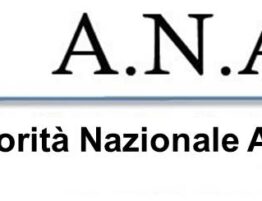
Faced with deciding on a controversy between consumers and banks, on 28 January the Tribunale di Verona raised a question of interpretation of European Union Law -regarding the likely concurrence between mandatory mediation and alternative dispute resolution for consumers- referring the case to the European Court of Justice.
In the Italian legal system there are various out-of-Court settlement procedures. Legislative Decree no. 28/2010 provides for mandatory mediation for cases related to condominiums, rights in rem, distribution of assets of a deceased person, hereditary succession, family agreements, leases, loans, leases of business, compensation for damages arising from health and medical liability and defamation through the press or other means of advertising, insurance, banking and finance contracts. However, there is also a voluntary procedure for out-of-court settlement of domestic and cross-border disputes between consumers and professionals residing and established in the European Union, within which the ADR body offers a solution or brings the parties together in order to facilitate an amicable settlement, provided and governed by art. 141, paragraph 4 of the Italian Consumer Code, as amended following the implementation in Italy of Directive no. 2013/11.
Since, in the present case, the dispute before the Court of Verona was between two consumers and a financial institution, the Judge noted that on the one hand the dispute was subject to mandatory mediation (since it dealt with banking matters), so he would have had to set a time limit for submitting the mediation application pursuant to art. 5, paragraphs 1 and 4 bis, Legislative Decree no. 28/2010, and on the other hand that the dispute also had the objective and subjective characteristics to fall within the application of Legislative Decree no. 130/2015, concerning alternative dispute resolution for consumer disputes.
Therefore, the matter referred for a preliminary ruling regards the possible concurrence between Article 5, paragraph 1-bis of Legislative Decree no. 28/2010 (mandatory mediation) and Article 141, paragraph 4, of the Italian Consumer Code (Legislative Decree no. 6 September 2005, n. 206), amended by Legislative Decree no. 130/2015 (voluntary ADR for consumers).
The Court of Verona asked the ECJ to clarify the relations between the two out-of-Court procedures, and in particular if the individual Member State could provide for mandatory mediation only for the matters which are excluded from the scope of the ADR for consumers.
The Italian court also asked the EU Judge how to combine the optional nature and the absence of mandatory legal assistance provided in the ADR procedure with mediation’s mandatory nature (indeed mediation is a mandatory requirement in order to start a Court action) and the necessary presence of a lawyer in it.
Now it is up to the European Court of Justice to solve these interpretative doubts, while ‒awaiting its final ruling‒ Italian courts will have to temporarily stay all judgments on the merits whose solutions depends on this decision.
(Bologna Office – Laura De Paulis – 0039(0)512750020)









